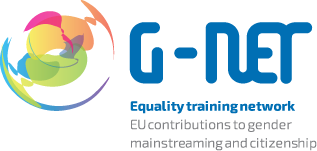Presentation
Venue: Tecnológico de Costa Rica, Campus Cartago
Event dates: 5th and 6th April 2017
Reception of communications (one page proposal/abstract): until 1st February 2017
Notification of accepted communications: 15th February 2017
Free Registration period: from 15th February to 31th March 2017
Submit Final communication: 31th March 2017
What is G-NET Summit
G-NET Summit 2017 is the final conference of G-NET project, a network of European and Latin American universities that develop teaching on European Integration and Gender. It addresses the gender equality principle and the gender policies as cross-cutting concepts in the integration processes, either the European integration process or the processes that take place in Latin America.
The aim of the Summit
The conference aims to discuss the need of including gender equality policies in the economic development processes that take place in several countries in order to lay the foundations for the political and economic development as they must be gender inclusive.
Thus, the Summit has a programme with matters that cover the political and the academic field. Gender experts will bring their knowledge on the gender mainstreaming in the public policymaking and the Higher Education Institutions Structure.
Furthermore, the results and outputs of the Network will be presented.
To whom is directed
The G-NET Summit is directed to:
- Researchers, teachers and students of universities, involved in the academic activity and administration in equality policies
- Research Performing Organisations with research lines on gender equality
- Authorities and government professionals that boost and reinforce gender equality policies
- Authorities and leaders of Higher Education Institutions
If you are unable to attend in person, G-NET Summit offers the option to make a virtual presentation.
The accepted communications will be published in “Quaderns de la Igualtat”, publication of University Rovira I Virgili.
Tracks of the Summit
G-NET invites for submission of proposals about the following tracks:
- Regional integration and tools for the development of gender equality policies
- Sectoral policies with gender mainstreaming: employment, gender-based violence, women entrepreneurship, education, science and technology, personal and family rights, inclusive citizenship and balanced representation

